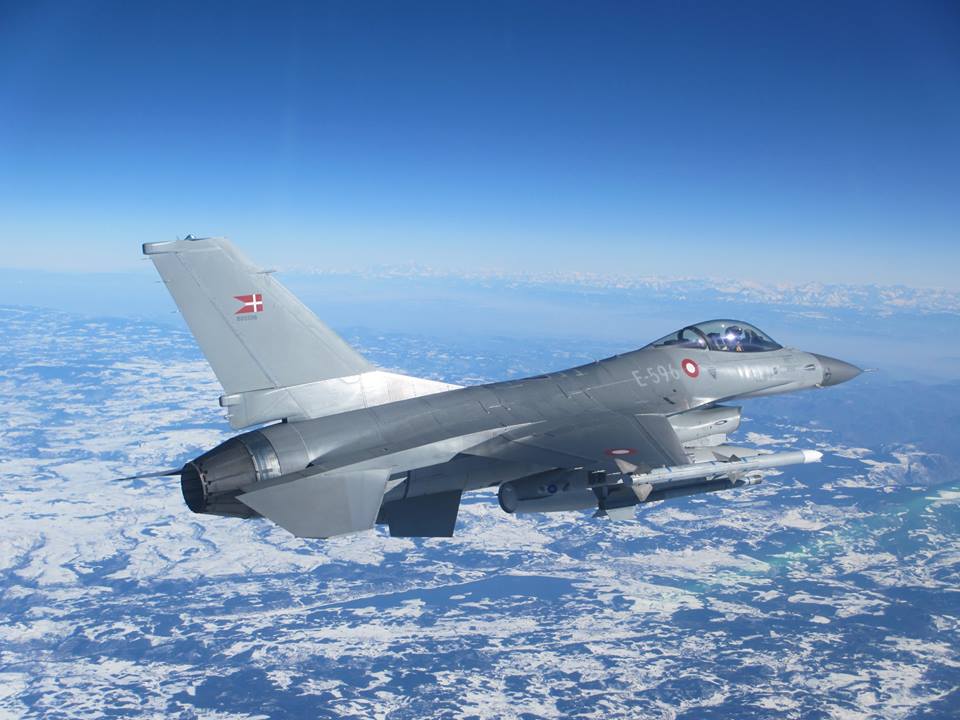Denmark intends to once again offer its F-16 fighter jets to NATO’s Baltic Air Policing initiative in the airspace above the Baltic Region in 2018.
The proposal will complement the 200 Danish ground forces being deployed on behalf of NATO to Estonia at the end of this year.
“Denmark will strongly contribute to the safety and stability of the Baltic Sea and Region,” said the foreign minister, Anders Samuelsen.
“So I’m pleased that Denmark is once again offering an F-16 contribution to help secure the Baltic airspace as part of the Baltic Air Policing. It’s in Denmark’s fundamental security policy interest, and it’s the right way to support our Baltic friends and neighbours.”
READ MORE: Parliament green-lights soldiers to the Baltics
Challenger off too
The offer to NATO includes four F-16s and ground crew of about 60 people in total. Danish F-16s were among the first to help protect Baltic airspace back in 2004 – a job they have undertaken five times in total now, of which the latest was in 2014.
The fighter jets are expected to be deployed on January 2018 and be stationed at Siauliai Air Base in Lithuania.
Further aviation news sees Denmark deploying its Challenger aircraft to support maritime security in the Horn of Africa region and the outer boundaries of the EU.
The planes will be deployed for 30 days from mid-May to mid-June as part of EU’s border security agency Frontex in the Mediterranean and the Combined Maritime Forces in their fight against terrorism and piracy on the high seas.
READ MORE: Danish Defence to monitor refugee traffic in Mediterranean Sea
Mad Dog in CPH
In other defence news, the PM, Lars Løkke Rasmussen, will host the UN secretary of defence, Jim Mattis, at the Parliament building in Copenhagen tomorrow.
The meeting will focus on the fight against the jihadist organisation Islamic State (IS), issues pertaining to Russia and the forthcoming NATO summit.
“The security situation is becoming increasingly intricate. Russia’s aggressive manoeuvres in eastern Europe are destabilising, parts of the Middle East are in flames, cyber attacks are a daily occurrence, and cowardly IS terror has hit innocent people in peaceful European cities,” said Rasmussen.
“All this makes the international partnership for peace and freedom even more important, but also more demanding than it has been in past years. So I look forward to discussing the security situation with one of our most important allies.”















